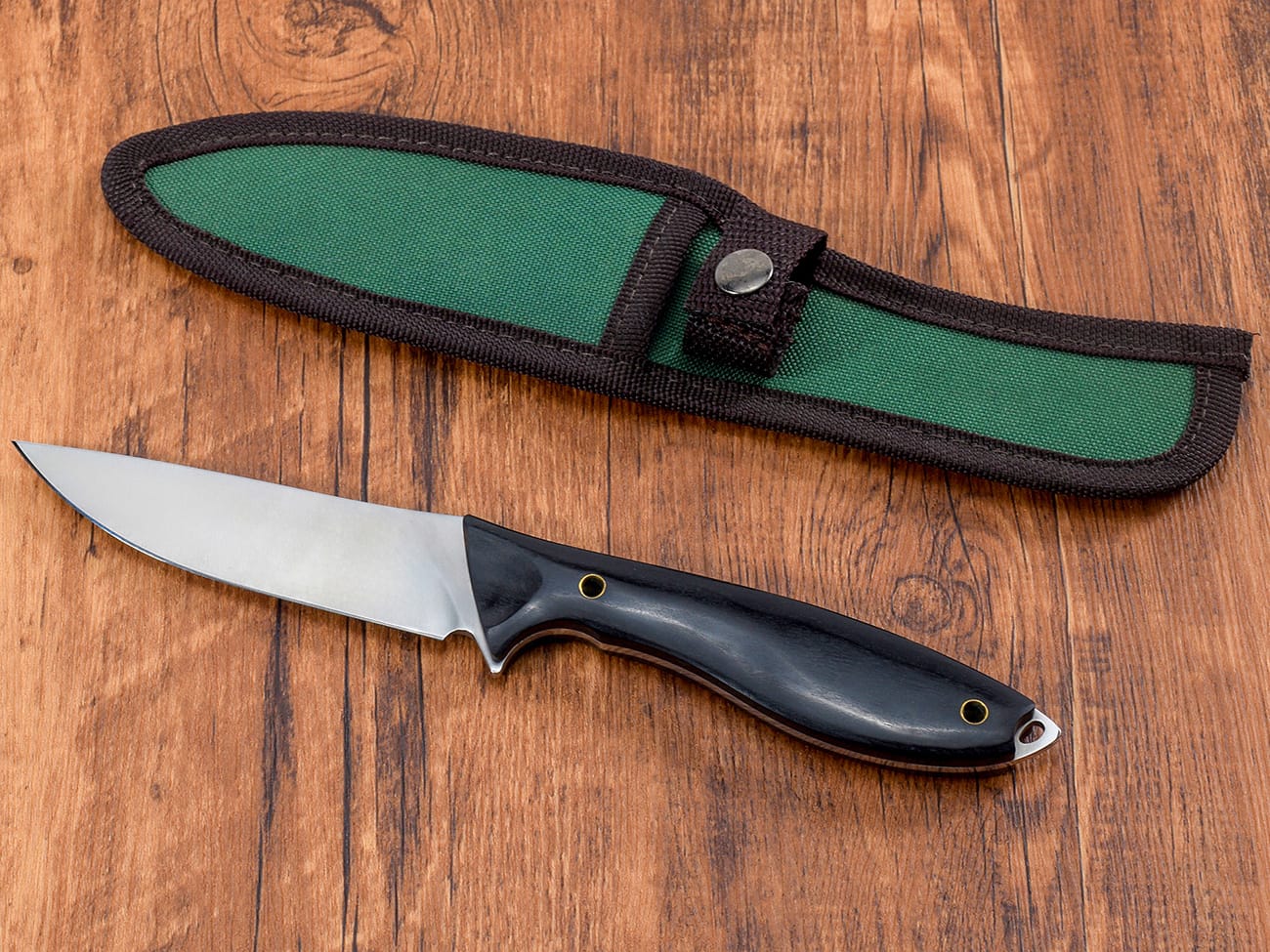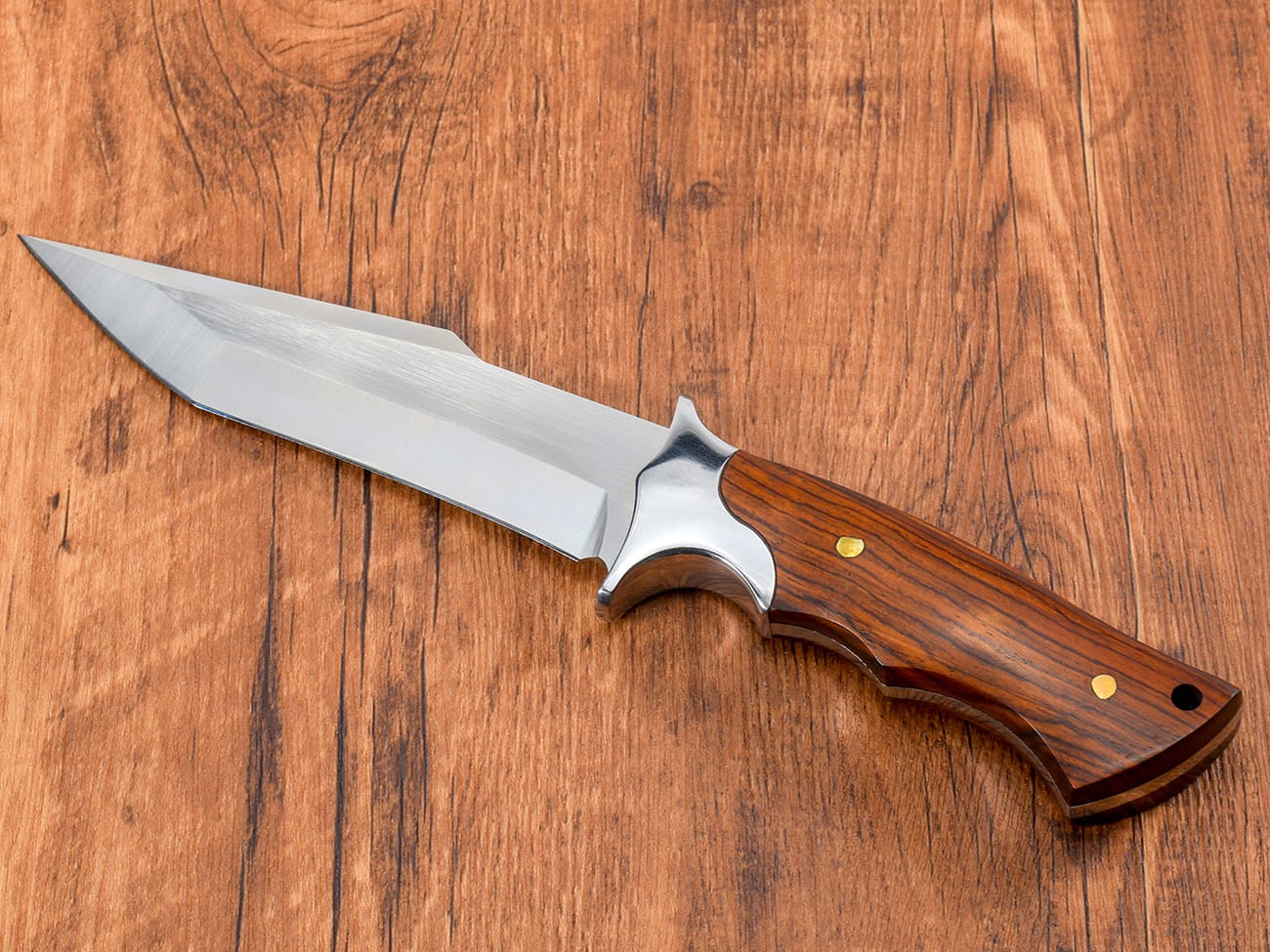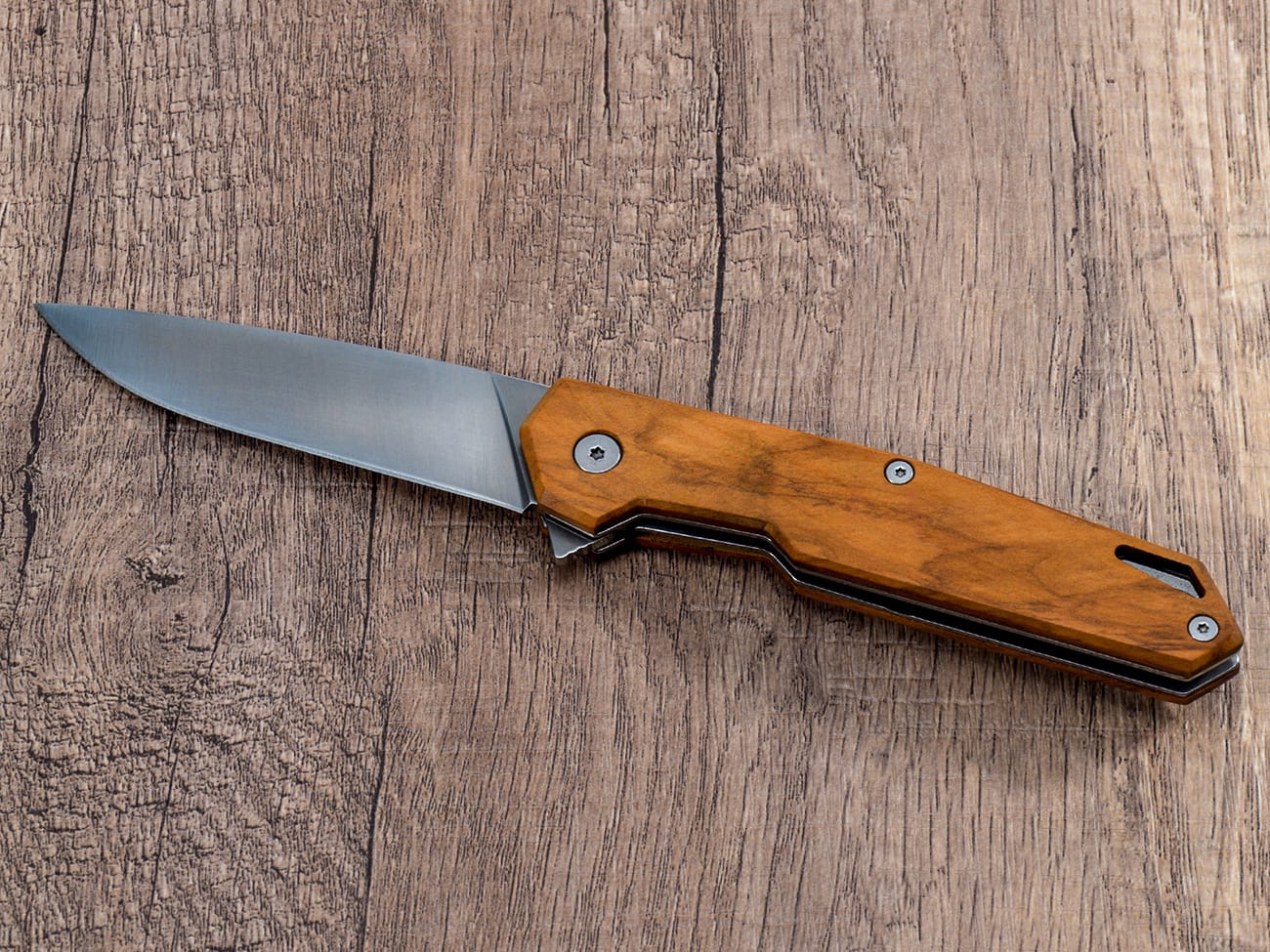Are you looking for a knife that combines strength, versatility, and reliability? Look no further than the fixed blade knife. In this comprehensive guide, we’ll explore everything you need to know about these robust tools, from their unique features to their various applications. Whether you’re an outdoor enthusiast, a survival expert, or simply someone who appreciates a dependable cutting tool, this article will provide valuable insights into the world of fixed blade knives.
What is a Fixed Blade Knife and Why Should You Care?
A fixed blade knife is a type of knife where the blade is permanently attached to the handle, creating a solid, one-piece construction. Unlike folding knives, which have a blade that folds into the handle, fixed blade knives offer superior strength and durability. This makes them ideal for a wide range of tasks, from outdoor adventures to everyday utility use.
The Anatomy of a Fixed Blade Knife
Before we dive deeper into the world of fixed blade knives, let’s break down their basic components:
- Blade: The cutting edge of the knife, typically made from high-quality steel
- Tang: The portion of the blade that extends into the handle
- Handle: The gripping area, often made from materials like wood, G10, or micarta
- Guard: A protective barrier between the blade and handle
- Pommel: The end of the handle, sometimes used for hammering or striking
Why Choose a Fixed Blade Knife?
There are several compelling reasons to opt for a fixed blade knife:
- Strength and Durability: The solid construction of fixed blade knives makes them incredibly strong and able to withstand heavy use.
- Reliability: With no moving parts, there’s less chance of mechanical failure compared to folding knives.
- Versatility: Fixed blade knives excel in a variety of tasks, from camping and hunting to self-defense and survival situations.
- Easy Maintenance: The simple design makes cleaning and maintaining fixed blade knives a breeze.
Types of Fixed Blade Knives
Fixed blade knives come in various shapes and sizes, each designed for specific purposes:
- Hunting Knives
- Survival Knives
- Tactical Knives
- Bushcraft Knives
- Kitchen Knives

What Are the Advantages of a Fixed Blade Knife?
Fixed blade knives offer numerous advantages over their folding counterparts:
- Superior Strength: The full tang construction provides unmatched durability.
- Ease of Use: No need to deploy the blade – it’s always ready for action.
- Versatility: Suitable for a wide range of tasks, from fine cutting to heavy-duty work.
- Reliability: With no moving parts, there’s less chance of failure in critical situations.
- Easy to Clean: The simple design makes maintenance a breeze.
How Do Fixed Blade Knives Compare to Folding Knives?
While both fixed blade and folding knives have their merits, here’s how they stack up against each other:
| Feature | Fixed Blade Knife | Folding Knife |
|---|---|---|
| Strength | Superior | Good |
| Portability | Bulkier | More compact |
| Ease of Use | Always ready | Requires deployment |
| Maintenance | Simple | More complex |
| Versatility | Excellent for heavy-duty tasks | Better for everyday carry |
What Are the Best Uses for a Fixed Blade Knife?
Fixed blade knives excel in various scenarios:
- Camping and Outdoor Activities
- Hunting and Field Dressing
- Survival Situations
- Bushcraft and Woodworking
- Self-Defense
- Food Preparation in Outdoor Settings
How to Choose the Right Fixed Blade Knife?
Selecting the perfect fixed blade knife depends on several factors:
- Intended Use: Consider the primary tasks you’ll be using the knife for.
- Blade Material: Look for high-quality steels like D2, 1095, or S30V.
- Handle Material: Choose a comfortable, durable material like G10, Micarta, or wood.
- Blade Length: Select a length appropriate for your needs (typically 3-7 inches).
- Tang Construction: Full tang knives offer the best strength and durability.
- Weight and Balance: Ensure the knife feels comfortable in your hand.
What Are the Legal Considerations for Carrying a Fixed Blade Knife?
Before purchasing or carrying a fixed blade knife, it’s crucial to understand the legal implications:
- Check local and state laws regarding knife ownership and carry.
- Be aware of blade length restrictions in your area.
- Understand the difference between concealed and open carry laws.
- Consider obtaining a concealed carry permit if required in your jurisdiction.
“Always prioritize safety and legality when carrying any type of knife.”
How to Properly Care for and Maintain Your Fixed Blade Knife?
To ensure your fixed blade knife remains in top condition:
- Clean the blade after each use with mild soap and water.
- Dry the knife thoroughly to prevent rust.
- Apply a thin layer of oil to the blade for protection.
- Sharpen the blade regularly using a whetstone or sharpening system.
- Store the knife in a dry place, preferably in a protective sheath.
What Are Some Popular Fixed Blade Knife Brands?
Several reputable manufacturers produce high-quality fixed blade knives:
- ESEE
- Benchmade
- Ka-Bar
- Fallkniven
- Morakniv
How to Safely Handle and Use a Fixed Blade Knife?
Safety should always be a top priority when using a fixed blade knife:
- Always cut away from your body.
- Use a stable surface when cutting.
- Keep the blade sharp – a dull blade is more dangerous.
- Use the right knife for the task at hand.
- Store the knife in a secure location when not in use.
What Are Some Advanced Techniques for Using a Fixed Blade Knife?
For those looking to expand their skills:
- Learn proper batoning techniques for wood processing.
- Practice feather sticking for fire starting.
- Develop precision carving skills for bushcraft projects.
- Master different grip techniques for various tasks.
How Do Fixed Blade Knives Perform in Survival Situations?
Fixed blade knives are invaluable in survival scenarios:
- They can be used to build shelter and process firewood.
- Their durability makes them ideal for food procurement and preparation.
- The strong blade can be used for self-defense if necessary.
- Fixed blade knives are excellent for creating other survival tools.
What Are the Environmental Impacts of Fixed Blade Knife Production?
As with any product, it’s essential to consider the environmental aspects:
- Look for manufacturers using sustainable materials and practices.
- Consider the longevity of the knife – a well-made fixed blade can last a lifetime.
- Properly dispose of old knives or consider recycling programs.
How Has the Design of Fixed Blade Knives Evolved Over Time?
The history of fixed blade knives is fascinating:
- Ancient civilizations used fixed blade knives for hunting and warfare.
- The Industrial Revolution brought about mass production techniques.
- Modern materials like high-carbon steels and synthetic handle materials have improved performance.
- Contemporary designs focus on ergonomics and task-specific features.
What Are Some Common Misconceptions About Fixed Blade Knives?
Let’s debunk some myths:
- Myth: Fixed blade knives are only for outdoor use. Reality: They have many practical applications in various settings.
- Myth: Bigger blades are always better. Reality: The ideal blade size depends on the intended use.
- Myth: Fixed blade knives are illegal to own. Reality: Laws vary by location, but many places allow ownership and carry of fixed blade knives.
How Do Fixed Blade Knives Compare to Other Cutting Tools?
While fixed blade knives are versatile, it’s worth comparing them to other tools:
- Axes: Better for heavy chopping tasks
- Machetes: Ideal for clearing brush and vegetation
- Multi-tools: Offer more versatility but less strength
- Saws: Superior for cutting through thick materials
What Are Some Innovative Features in Modern Fixed Blade Knives?
The world of fixed blade knives continues to evolve:
- Integrated fire starters in the handle
- Hollow handles for survival gear storage
- Specialized blade coatings for corrosion resistance
- Modular sheath systems for customizable carry options
How to Incorporate a Fixed Blade Knife into Your Everyday Carry (EDC)?
While fixed blade knives are often associated with outdoor use, they can be part of your EDC:
- Choose a compact, legal-to-carry size.
- Invest in a quality sheath for safe and comfortable carry.
- Consider your daily activities and choose a knife that complements them.
- Be mindful of local laws and regulations regarding knife carry.
What Role Do Fixed Blade Knives Play in Various Professions?
Fixed blade knives are essential tools in many industries:
- Military and Law Enforcement: Tactical applications and utility use
- Search and Rescue: Versatile tool for various emergency situations
- Fishing and Maritime: Corrosion-resistant blades for marine environments
- Culinary Arts: High-end chef’s knives for food preparation
How to Evaluate the Quality of a Fixed Blade Knife?
When assessing a fixed blade knife, consider these factors:
- Blade Steel: Research the properties of different steel types.
- Heat Treatment: Proper heat treatment ensures optimal performance.
- Tang Construction: Full tang designs offer the best strength.
- Fit and Finish: Look for smooth edges and tight tolerances.
- Handle Ergonomics: Ensure the knife feels comfortable in various grips.
What Are Some Customization Options for Fixed Blade Knives?
For those looking to personalize their knives:
- Custom handle materials (e.g., exotic woods, custom G10 colors)
- Blade etching or engraving
- Aftermarket sheaths
- Handle sculpting for improved ergonomics
- Specialized blade coatings for enhanced performance
How to Choose the Right Sheath for Your Fixed Blade Knife?
A quality sheath is essential for safely carrying and protecting your knife:
- Consider the material (e.g., leather, Kydex, nylon)
- Ensure proper retention to prevent accidental drops
- Look for adjustable carry options (e.g., belt loop, MOLLE compatibility)
- Check for drainage holes to prevent moisture buildup
- Consider noise reduction features for tactical applications
What Are the Ethical Considerations of Owning and Using Fixed Blade Knives?
As responsible knife owners, it’s important to consider the ethical aspects:
- Understand and respect local laws and regulations
- Use knives responsibly and safely
- Educate others about proper knife use and safety
- Consider the environmental impact of knife production and disposal
- Support ethical manufacturers and sustainable practices
Conclusion: Is a Fixed Blade Knife Right for You?
Fixed blade knives offer unparalleled strength, reliability, and versatility. Whether you’re an outdoor enthusiast, a survival expert, or someone who appreciates a dependable tool, a fixed blade knife can be an invaluable addition to your gear. By understanding the features, benefits, and considerations outlined in this guide, you’ll be well-equipped to choose the perfect fixed blade knife for your needs.Remember, a knife is only as good as its user. Take the time to learn proper handling, maintenance, and safety techniques to get the most out of your fixed blade knife. With the right knowledge and respect for this timeless tool, you’ll be ready to tackle whatever challenges come your way.Key Takeaways:
- Fixed blade knives offer superior strength and reliability compared to folding knives.
- They excel in outdoor, survival, and heavy-duty applications.
- Proper care and maintenance are essential for longevity and performance.
- Always consider legal and ethical implications of knife ownership and use.
- Choose a knife that fits your specific needs and intended use.




